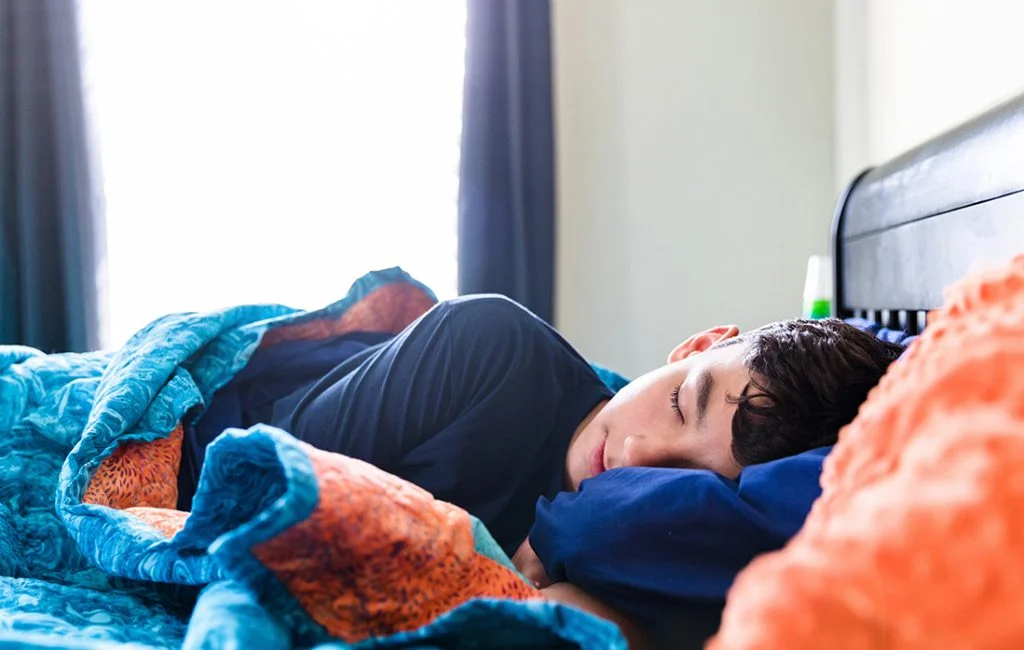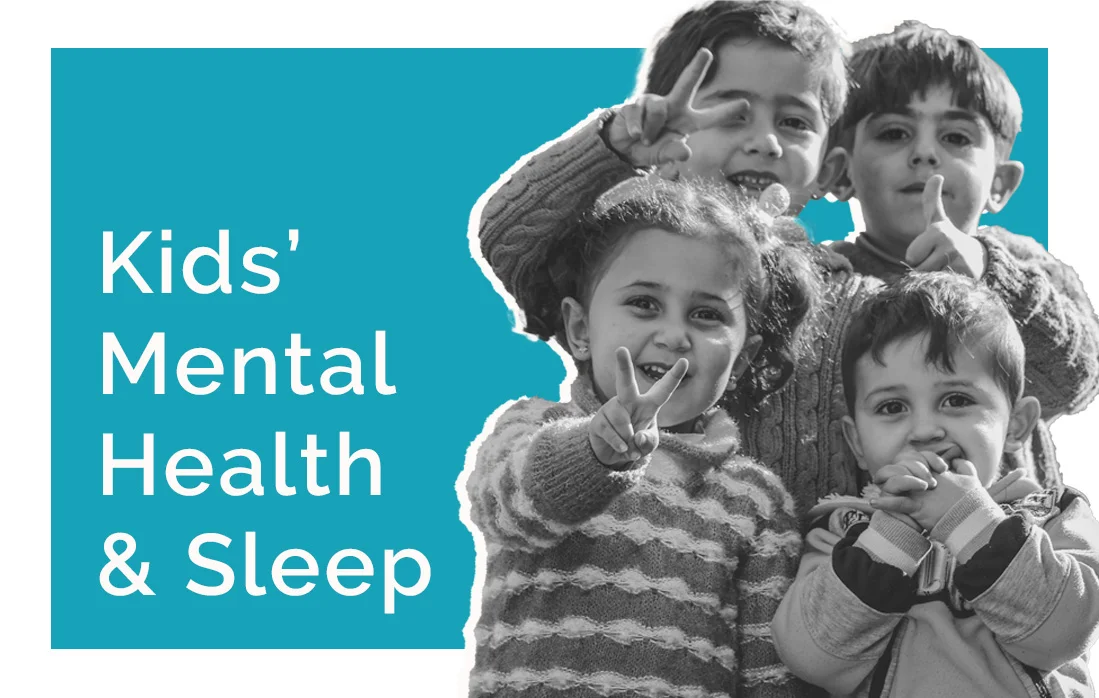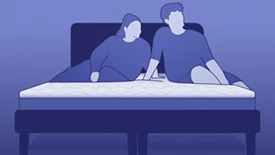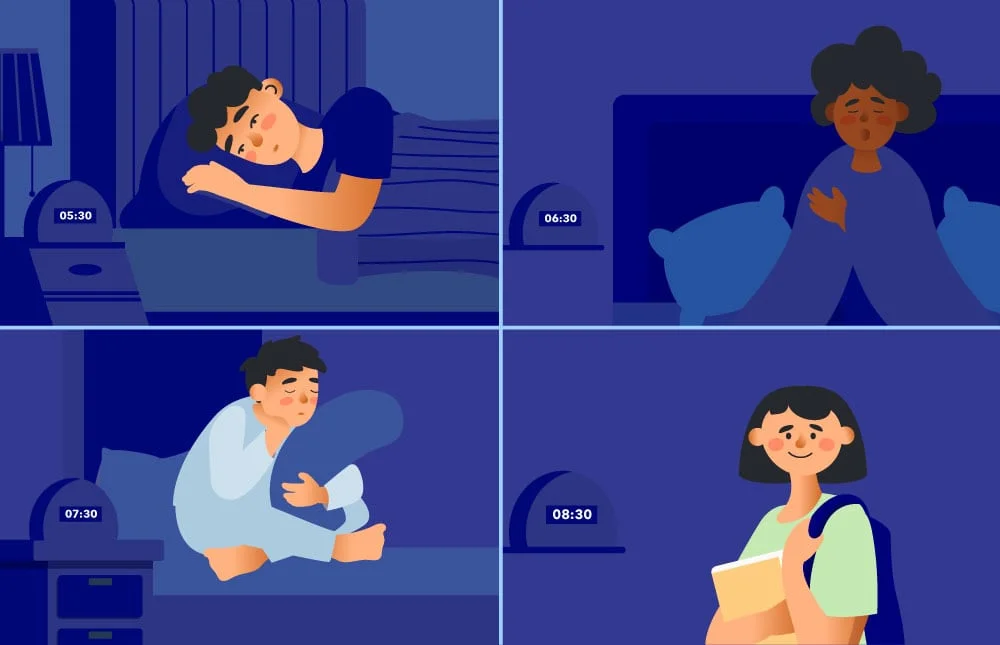
Earlier this year, in partnership with Atomik Research (an independent market research agency), The American Academy of Sleep Medicine surveyed 2,005 parents on the factors that negatively affect the sleeping schedules of their school-aged children and teens. (1)
Ultimately, the survey revealed (and perhaps not surprisingly) that 50 percent of parents named video games as the number one sleep stealer. Close on its heels, 44 percent of parents blamed social media, 34 percent said it was homework, 31 percent pointed the finger at friends, and to round out the top five, 28 percent of parents put the onus on extracurricular activities.
And while video games and social media may understandably warrant the ire they draw, it’s not so black and white for extracurriculars. Time and again, research shows that extracurricular activities are associated with higher levels of optimism and lower levels of anxiety and depression. (2) Digging a little deeper, we find that non-athletic extracurricular participation (academic clubs, music practice/instruction, or volunteering) has been associated with better academic achievement and sociability. (3) On the other hand, researchers have found that athletic extracurriculars, whether it’s a factor of delayed bedtimes or earlier wake times to accommodate them, can have a negative impact on teens’ sleep duration. (3)
According to The American Academy of Sleep Medicine (AASM), teenagers between the ages of 13 and 18 years need about 8 to 10 hours of sleep per 24 hours. (4) But when full calendars take palpable bites out of their sleep schedules, there’s the rub — something has to give. Parents will be happy to know they don’t have to throw the baby out with the bathwater. Kids can still participate in extracurriculars — they just need some balance, and everyone needs to be mindful of overscheduling.
How Do Extracurriculars and Overscheduling Affect Teens and Their Sleep?
“Teen sleep is squeezed by a “perfect storm” of factors, and over-scheduling is one of them,” says Heather Turgeon, psychotherapist and co-author of Generation Sleepless. “Teenagers are already committed to being in school from 8 a.m. to 3 p.m. (versus college students who have some degree of flexibility in their schedules), and in many cases, their extracurricular commitments are the most intense of any age group.”
Peeling back the onion a little bit, Turgeon adds, “Sports practices can run on for hours and go late in the day. Add to that other clubs and activities, homework, prepping for college tests and applications, and you have a teen that’s too busy.”
Turgeon also notes, “Distraction from screens can make kids inefficient in doing their homework (so it all takes even longer), and at the end of the day, they want to unwind and connect, which takes them to their phones.” All of the above only compound the problem of extracurriculars, and ultimately, sleep is pushed later and later.
Signs of Overscheduling in Teens
Turgeon says, “Two major signs of an overscheduled teen is that they can’t get to bed before 11 p.m. or they sleep in a lot on the weekend to make up for chronic weekday sleep loss.” Other signs that your teen may be overscheduled include:
- Little to no downtime
- Poor academic performance
- Moodiness and irritability
- Frequent illnesses
- No time for socializing and hanging out with friends
- Everyone in the family is exhausted
How Can Parents Prevent Burnout and Manage Sleep with Their Teens?
If you think your teen is overscheduled, it’s important to take action sooner rather than later and get some balance for everyone’s sake. “Most high schoolers can be comfortably committed to two activities outside of school,” says Turgeon. “Encourage your child to pick two activities and let go of things they don’t love.” More specifically, she suggests working by season. “Pick a season for certain commitments — for example, playing one sport in fall and one in spring, instead of year-round training in one sport.”
Beyond paring down, Turgeon says families should “have reasonable screen agreements that involve leaving phones outside the bedroom and turning them off at night (even texting and video calling, which keeps the social brain of the teen very engaged and awake) so that kids can actually wind down and get the sleep they need.”
In addition to managing screen time, parents can prevent burnout and ensure healthy sleep for their teens by:
Allowing their teen to have some unstructured time
While free play is more often associated with younger kids, teens also need some unscheduled, unstructured free time. So try to make sure they have some blocks of unscheduled time at least weekly. They spend most of their time following instructions and minding their Ps and Qs. Not only does downtime allow them to relax and let loose, but a little boredom is never a bad thing.
Encouraging your teen to maintain consistent sleep and wake times
Consistent sleep and wake times are a crucial part of sleep hygiene. Consistency helps maintain your body’s circadian rhythm, and research has shown it leads to higher-quality sleep, better health outcomes, and, as far as kids are concerned, better academic performance. So encourage your child to go to bed and wake up at the same time every day — even on weekends and holidays. (5) (6)
Creating a cool, dark, and quiet environment that’s conducive to sleep
It’s incredibly hard to get a good night’s sleep in sub-optimal conditions, so do your best to make sure your child’s room is sufficiently dark, quiet, and cool night after night.
Be mindful of the pressure you put on your child
FOMO is real. As parents, we want our kids to enjoy life to the fullest. But in our effort to ensure they don’t miss out on the good stuff, we might be the reason they’re overscheduled. The truth is, they don’t have to participate in everything they can sign up for. Talk to your child, find out what makes them happy, and skip the things that don’t bring them joy and excitement.

A Student’s Ultimate Guide to Great Sleep in College

A Complete Guide to Kids’ Mental Health and Sleep

Best Mattresses for Kids (2026): Bedtime Made Better with Our Top Picks

How Later School Start Times Are Going, According to Real Teens and Their Parents
Sources
1. AASM Sleep Prioritization Survey Children and Teen Sleep Disruptors. Available at: https://aasm.org/wp-content/uploads/2023/08/sleep-prioritization-survey-2023-sleep-disruptors.pdf (Accessed: 19 September 2024).
2. Eva Oberle, Xuejun Ryan Ji, Salima Kerai, Martin Guhn, Kimberly A. Schonert-Reichl, Anne M. Gadermann, Screen time and extracurricular activities as risk and protective factors for mental health in adolescence: A population-level study,Preventive Medicine, Volume 141, 2020, 106291, ISSN 0091-743 https://doi.org/10.1016/j.ypmed.2020.106291
3. Meltzer, L. J., Plog, A. E., Wahlstrom, K. L., & McNally, J. (2022). Changing school start times: Impact on extracurricular activities and employment. Frontiers in Sleep, 1, 1044457. https://doi.org/10.3389/frsle.2022.1044457
4. Recommended Amount of Sleep for Pediatric Populations: A Consensus … Available at: https://jcsm.aasm.org/doi/10.5664/jcsm.5866 (Accessed: 19 September 2024).
5. Chaput JP, Dutil C, Featherstone R, et al. Sleep timing, sleep consistency, and health in adults: a systematic review. Appl Physiol Nutr Metab. 2020;45(10 (Suppl. 2)):S232-S247. doi:10.1139/apnm-2020-0032
6. Okano K, Kaczmarzyk JR, Dave N, Gabrieli JDE, Grossman JC. Sleep quality, duration, and consistency are associated with better academic performance in college students. NPJ Sci Learn. 2019;4:16. Published 2019 Oct 1. doi:10.1038/s41539-019-0055-z
7. Turgeon, Heather. Author interview. September 18, 2024.

























